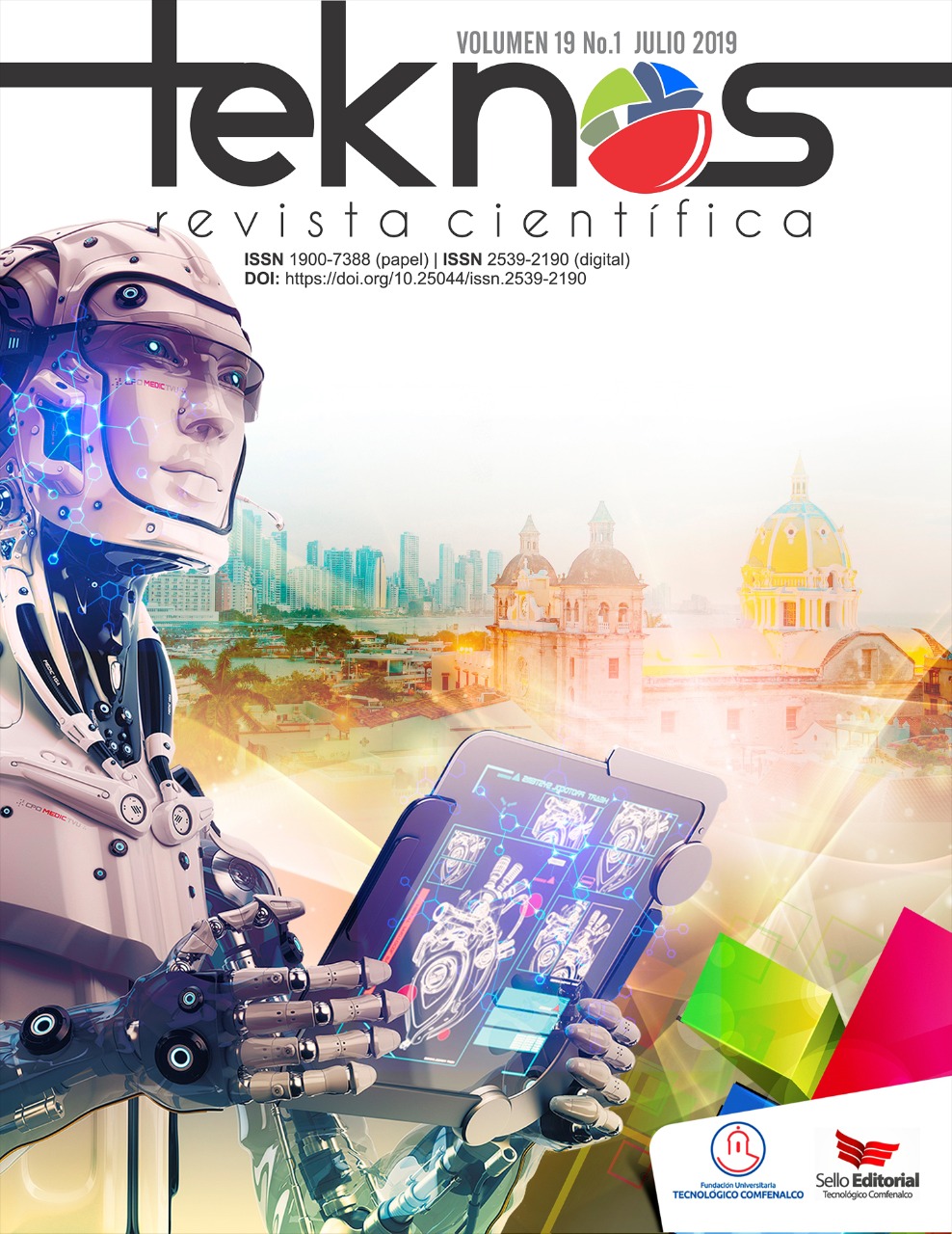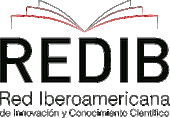Classroom experience at the Fundación Universitaria Comfenalco Santander, applying the PBL model and role play as a pedagogical resource.
DOI:
https://doi.org/10.25044/25392190.959Keywords:
Problem Based Learning, Public Policy, Role PlayAbstract
This article presents a classroom experience based on a simulation for the elaboration of public policies at the level of higher education, using the Problem-Based Learning Model -PBL and the role-playing strategy as a pedagogical resource. In the simulation of the role play, the students were divided as interested actors in a specific public policy (Housing Policy) and the teacher assumed the role of government. This simulation exercise was developed in two groups of different levels (second and fourth semester) and had as objective the reflection and understanding of the students on the political variables that affect this process, highlighting especially the existence of a set of political actors and social with differentiated interests and a government that - in addition to acting as a negotiator and arbitrator of the process - also has its own preferences. Aiming to be a pedagogical tool capable of generating significant learning in students and generate greater understanding of the complexity inherent in the exercise of policy making that seeks to generate legitimate and effective public policies in a context such as Colombia.
Downloads
References
Asal, Victor y Blake, Elizabeth (2006). Creating Simulations for Political Science Education. Journal of Political Science Education Vol. 2, No 1, pp. 1-18.
Baranowski, Michael (2006). Single Session Simulations: The Effectiveness of Short Congressional Simulations in Introductory American Government Classes. Journal of Political Science Education Vol. 2, No 1, pp. 33-49.
Barrell, J. (1999). El aprendizaje basado en problemas. Un enfoque investigativo. Buenos Aires: Manantial.
Barrett, T. (2005). Understanding problem-based learning. En Handbook of enquiry & problem based learning. In T. Barrett, I. MacLabhrainm, H. Fallon (Eds.), pp 13-25.
Barrows, H.S. (1986) A Taxonomy of problem- based learning methods. Medical Education, 20: 481-486.
Barrows, HS. (1996) Problem-Based learning in medicine and beyond: A brief overview. In WILKERSON L., GIJSELAERS W.H. (eds) Bringing Problem-Based Learning to Higher Education: Theory and Practice, San Francisco: Jossey-Bass Publishers, pp. 3-12.
Boix, Carles (2002). Partidos políticos, crecimiento e igualdad. Madrid: Alianza. Bolzan,
Branda, L. (2001). Aprendizaje Basado en Problemas centrado en el estudiante, orientado a la comunidad. En PULPEIR, A. (dir.) Aportes para un cambio curricular en Argentina 2001. Buenos Aires: Universidad de Buenos Aires. p. 79-101. Disponible al 5.4.2018 en http://www.psico.uniovi.es/fac_psicologia/paginas_eees/Adaptacion_de_profesorado/metodos_docentes/aprendizaje_ basado_en_problemas_aulafutura.pdf
R.F.F.A. (2003). O aprendizado na internet utilizando estrategias de roleplaying game (RPG). Tesis de doctorado, Universidade Federal de Santa Catarina, Florianopolis, Brasil.
Downing, K., Kwong, T., Chan, S. W., Lam, T. F., & Downing, W. K. (2009). Problem-based learning and the development of metacognition, Higher Education, 57 (5), 609-621.
Downs, Anthony (1992). Teoría económica de la acción política en una democracia, en G. Almond et al. Diez Textos Básicos de Ciencia Política. Barcelona: Ariel Ciencia Política.
Dror, Yehezkel (1989). Public Policymaking reexamined. New Brunswick and Oxford: Transaction Publishers.
Endersby, James W. y David J. Webber (1995). Iron Triangle Simulation: A role-playing game for undergraduates in Congress, interest groups, and public policy classes. PS: Political Science and Politics, vol. 28, No3, pp. 520-523.
Ferreira Borges, Aurelio et al. (2011). Estrategias de enseñanza-aprendizaje con el apoyo del juego pedagógico roleplaying game. Revista Iberoamericana de Educación, Vol. 56, No 3.
Fisher, Roger y Ury, William (1985). Sí, de acuerdo! Como negociar sin ceder. Bogota: Norma.
Gil, Carolina (2010). “El juego de rol aplicado a la educacion ambiental”. Disponible al 5.4.2018 en http://www2.fe.ccoo.es/andalucia/docu/p5sd7055.pdf
Grindle, Merilee S. y Thomas, John W. (1991). Public choices and policy change. The political economy of reforms in developing countries. Baltimore: The Johns Hopkins University Press.
Koh, G. C. H., Khoo, H. E., Wong, M. L. & Koh, D. (2008). The effects of problem-based learning during medical school on physician competency: A systematic review. CMAJ, 178, 34-41.
Lay, Celeste J., y Kathleen J. Smarick (2006). “Simulating a Senate Office: The Impact on Student Knowledge and Attitudes”. Journal of Political Science Education Vol. 2 No 2, pp. 131-146
Lindblom, Charles (1991). El proceso de elaboración de las políticas públicas. Mexico DC: Porrua. Niskanen,
William (1980). Cara y cruz de la burocracia. Madrid: Espasa Calpe.
LINDBLOM, Ch.E., "The Science of Muddling Through", en Public Administration Review, vol. 19, 1959, pp. 79-89.
Molina, J. A., García, A., Pedraz, A. & Antón, M. A. (2003). Aprendizaje basado en problemas: una alternativa al método tradicional. Revista de la Red Estatal de Docencia Universitaria, 3 (2), 79-85.
Morales Bueno, P., y Landa Fitzgerald, V. (2004). Aprendizaje Basado en Problemas. En: Theoria, nº 13(1). Disponible al 5.4.2018 en http://campus. usal.es/~ofeees/NUEVAS_METODOLOGIAS/ABP/13.pdf
Nendaz, M. R. & Tekian, A. (1999). Assessment in problem-based learning medical schools: A literature review. Teaching and Learning in Medicine, 11 (4), 232-243.
O’Reilly, Patricia (2008). “Finding the balance in public policy simulations and role playing”. Paper presentado al Anual Meeting of the APSA Teaching and Learning Conference, San Jose, California.
Repetto, F. (2004). Capacidad estatal. Requisito para el mejoramiento de la política social en América Latina. Documentos de trabajo del INDES.
Restrepo, Bernardo. (2005) Aprendizaje basado en problemas (ABP): una innovación didáctica para la enseñanza universitaria Educación y Educadores, vol. 8, pp. 9-19 Universidad de La Sabana Cundinamarca, Colombia.
Solaz-Portolés, JJ, et al. (2011). Aprendizaje basado en problemas en la Educación Superior: una metodología necesaria en la formación del profesorado. Depart. Didàctica de les Ciències Exper. i Socials
Subirats, J. et al. (2008). Análisis y gestión de políticas públicas. Barcelona: Ariel.
Sutcliffe, Mark. Simulations, games and role – play. Disponible al 5.4.2018 en www.economicsnetwork.ac.uk/handbook/printable/games_vs.pdf
Stepien, W. J. (1993). Problem-based learning: As authentic as it gets. Educational Leadership, 50 (7), 25-28.
Tsebelis, George (2000). Veto players and institutional analysis, en Governance, No 13, pp. 441-474.
White, H B. (1996). Dan tries problembased learning: A case study. En L. Richlin (Ed.), To improve the Academy, Vol. 15 (pp 75-91). Stillwater, OK: New Forum Press & Professional and Organizational Network in Higher Education.
Downloads
Published
How to Cite
Issue
Section








